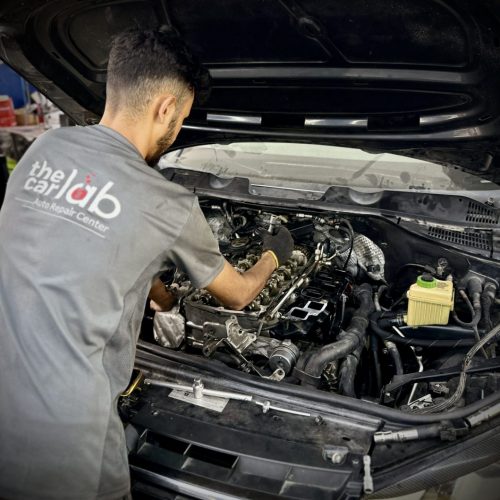Introduction: The Importance of GMP Certification
Good Manufacturing Practices, or GMP, is a cornerstone of quality and safety in the pharmaceutical industry. But what does it really mean for pharmaceutical companies, and why should they care about getting GMP certified? To put it simply, GMP ensures that the drugs we take are manufactured consistently and controlled to the highest standards. For pharmaceutical companies, it’s not just a matter of ticking a box on a regulatory checklist – it’s about protecting patients, building trust, and gaining a competitive edge in a global market.
Think of GMP as the unspoken promise between a pharmaceutical company and the public. It says, “We care about the safety and effectiveness of our products, and we’ll take every necessary step to meet those standards.” If you want your products to stand out in a crowded, competitive space, certificacion GMP is one of the best ways to show the world that your company is serious about quality.
Understanding GMP: Beyond the Basics
So, what exactly does GMP cover? It’s not just about shiny certificates on the wall. GMP involves a rigorous set of principles designed to ensure that every aspect of drug manufacturing – from raw materials to packaging – meets strict standards. This includes everything from employee training and hygiene to how equipment is maintained and how products are stored.
It’s easy to assume that GMP is only about following a checklist, but it’s much more than that. For instance, it emphasizes the importance of quality control – ensuring that every batch of a drug is tested before it hits the shelves. Documentation plays a huge role as well: keeping detailed, transparent records means any issues that arise can be traced back and fixed. Even equipment standards are scrutinized, making sure that machinery doesn’t introduce contaminants.
Why all this fuss? Because pharmaceutical products have one job: to keep people safe and healthy. One slip-up, and the consequences can be devastating. That’s why GMP standards are so rigorous – they exist to make sure companies don’t just meet the bare minimum but strive for excellence in every step of the process.
The Global Impact of GMP Certification
Now, let’s talk about why certificacion GMP is such a big deal on a global scale. Pharmaceutical companies are competing on an international stage, and GMP is often the golden ticket to entering and thriving in foreign markets.
In many countries, certificacion GMP is not optional. It’s a regulatory requirement, and without it, your products might never leave the factory doors. Whether you’re exporting to the European Union, the United States, or Asia, a GMP-certified facility is often non-negotiable. This makes GMP not just a local standard, but a global one.
But here’s the kicker: GMP certification can actually boost your company’s reputation in international markets. It demonstrates that you’re serious about compliance and quality control, and it builds trust with consumers, regulators, and potential business partners. In an industry as high-stakes as pharmaceuticals, trust is everything.
The GMP Certification Process: Step by Step
So, how do you get certified? It’s not a one-time thing or a quick fix. The GMP certification process involves a series of steps that require careful preparation, commitment, and follow-through.
The process typically begins with a self-assessment: Where are your current practices in relation to GMP standards? Identifying gaps at this stage is crucial, as it gives you a roadmap to follow before the official inspection. Then comes the implementation phase, where you’ll address any issues identified in the self-assessment – things like updating documentation, improving cleanliness protocols, or maintaining equipment.
Once your internal processes are aligned with GMP standards, it’s time for the external audit. This is where the certification body (like the FDA or EMA) comes in to inspect your facilities. They’ll go over everything with a fine-tooth comb: from production lines to storage rooms to documentation.
Don’t let this process intimidate you. The certification body isn’t out to catch you making mistakes; they want to work with you to help you succeed. Being prepared, transparent, and committed to quality will go a long way in making this process smooth.
Overcoming Common Challenges in GMP Certification
The road to GMP certification isn’t always a straight line, and that’s okay. Many pharmaceutical companies face challenges along the way, whether it’s inadequate documentation or poor employee training. But here’s the thing: challenges aren’t roadblocks; they’re learning opportunities.
One common issue is inadequate training. If your staff isn’t well-trained on GMP standards, they won’t know how to execute them properly. This can lead to mistakes, delays, and even failures in passing inspections. It’s crucial to invest in continuous education for all employees, from the top down. After all, GMP is about creating a culture of quality, not just a set of rules to follow.
Another challenge? Lack of robust documentation. GMP requires meticulous records of everything: testing results, production logs, maintenance schedules. These records help identify any issues that arise and ensure that your company is always compliant with regulatory standards. Without proper documentation, even small mistakes can lead to major problems.
But don’t worry – these challenges can be overcome with the right mindset. Many companies that have struggled with certification eventually succeed by focusing on improvement, collaboration, and keeping quality at the forefront.
How GMP Certification Boosts a Company’s Reputation
Let’s take a moment to talk about the real, tangible benefits of certificacion GMP– namely, how it helps your company build a solid reputation.
First, there’s trust. When consumers see that a pharmaceutical company is GMP certified, they know they’re getting safe, reliable products. But it’s not just consumers – regulators, healthcare professionals, and even investors will take note. Certification signals that your company isn’t cutting corners. You’re following global standards, prioritizing patient safety, and doing things by the book. And that’s something that not only builds trust but solidifies long-term relationships.
Also, GMP certification can be a great marketing tool. It’s a proven indicator of quality, and it can give you a competitive edge in a crowded market. Plus, it may even open doors to new business opportunities, as many hospitals, clinics, and other healthcare entities won’t work with suppliers unless they’re GMP certified.
GMP Beyond Compliance: Creating a Culture of Quality
Here’s the thing: GMP isn’t just about meeting regulatory requirements – it’s about fostering a deeper culture of quality within your organization. Certification might be the first step, but maintaining that high standard is an ongoing process. Companies that adopt GMP principles and build them into their daily operations often find that the benefits extend far beyond just meeting a regulatory requirement.
Incorporating GMP practices into your company’s DNA helps ensure that quality control becomes second nature. This means better consistency, fewer mistakes, and more innovative solutions to common manufacturing problems. Plus, it strengthens your brand’s reputation as a leader in pharmaceutical excellence.
The Future of GMP: Trends and Innovations
Looking ahead, what does the future hold for certificacion GMP? Well, for one, automation is starting to play a bigger role in maintaining GMP standards. With more sophisticated machinery and systems, pharmaceutical companies can ensure better consistency, precision, and traceability in production.
Additionally, digitalization is also reshaping the GMP landscape. From real-time monitoring of production lines to cloud-based documentation systems, technology is helping streamline the GMP process.
Sustainability is another area where GMP is evolving. As environmental concerns continue to grow, pharmaceutical companies will need to find ways to minimize waste, use greener materials, and reduce their carbon footprint while still adhering to GMP standards. This shift could play a huge role in shaping the industry in the years to come.
Conclusion: The Path Forward for Pharmaceutical Companies
In conclusion, certificacion GMP is more than just a regulatory checkbox – it’s a powerful tool that helps pharmaceutical companies protect patients, enhance their reputation, and thrive in a competitive global market. While the process of getting certified can seem daunting, the benefits far outweigh the challenges. By committing to GMP standards, you’re not just meeting the minimum requirement – you’re investing in the future of your company and the well-being of patients everywhere.













